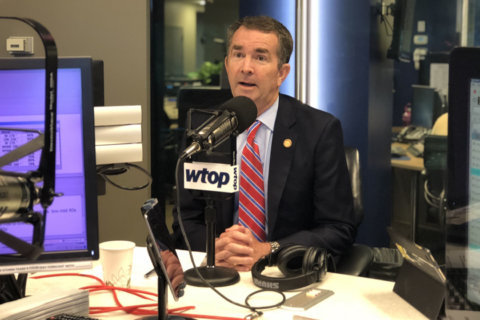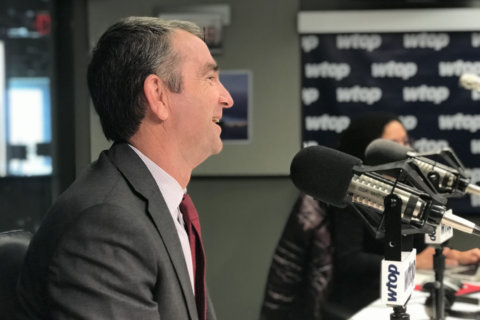RICHMOND, Va. — From schools, roads and health care, to housing, elections and adding to the state’s rainy day fund, Virginia Gov. Ralph Northam proposed more than $2 billion in budget amendments Tuesday, but the breadth of the plan drew immediate concerns from Republican leaders in the General Assembly.
In a presentation to the General Assembly’s joint money committees, Northam expanded on his proposals to cash in on the current economy and federal tax changes that would lead Virginia taxpayers to send part of their federal tax cuts to the state government to provide for key services.
“A growing economy and federal tax changes have come together to create a unique opportunity,” Northam told legislators.
Some of the largest single items, besides adding to the reserve fund, include covering growing costs of Medicaid, making the state’s earned income tax credit fully refundable to provide a boost for low-to-middle-income Virginians, and new money for school construction loans and Virginia’s
Transportation Infrastructure Bank.
That transportation funding would be used to launch large projects such as an Interstate 81 overhaul by providing startup money that could be repaid later through tolls or regional taxes.
Education funding proposals include continuing the Virginia Preschool Initiative Plus, an additional 2 percent salary increase for teachers next summer on top of the 3 percent already planned, additional school counselors and school resource officer training, and funding focused on college or career educational guidance and affordability.
State and state-supported workers in schools and elsewhere would also get a one-time 1 percent bonus.
Northam’s proposals assume the state will expand its collection of online sales taxes to require it for all online sales, which a U.S. Supreme Court ruling earlier this year allowed for the first time. Northam estimates it would add about $65 million to the general fund.
Among other spending, Northam proposed additional funding for elections officials to improve training on and oversight of the state’s voter registration list system in the hope of avoiding a repeat of last year’s major mess of misassigned voters. Northam also proposed additional money
to prepare for the 2020 presidential primary and a potential referendum on the Equal Rights Amendment.
GOP response
Republicans, who narrowly control both chambers in the General Assembly, were quick to throw cold water on the scale of Northam’s proposals.
“The governor perhaps got some gubernatorial fiscal bulimia in there in the fact that he is distributing enormous amounts of money,” Senate Majority Leader Tommy Norment said.
“I expect that the legislative process will realign some of those priorities,” Norment said.
Republicans would prefer broader tax changes than those proposed by Northam in order to reach wealthier Virginians, Norment and House Speaker Kirk Cox said, rather than a decision to spend money the state is projected to collect if it aligns its tax code with new federal laws.
They said by without additional tax cuts, Virginia would effectively be raising taxes without changes this year.
Cox was less combative than Norment.
“The ball will now be in our court, and there’s some things we can agree on,” Cox said.
He and House Appropriations Chair Del. Chris Jones cited tuition predictability and veterans’ transition to the workplace.
Any action in the General Assembly session, which begins Jan. 10, will likely be influenced by the November 2019 election for all 140 seats in the General Assembly.
“It’s all about prioritization of your expenditures,” Norment said.
While the debate over tax changes could create another significant schism in budget plans right off the bat, Norment said the General Assembly will pass a budget act on time this year, unlike last session.
“It would be my expectation, and I’m looking at some procedural things to make sure we don’t have that travesty that was a bastardization of last year’s budget process,” Norment said.
Norment declined to detail the procedural changes he has in mind.
He lost out when the two-year budget eventually signed into law last spring included Medicaid expansion. This year’s proposals are technically amendments for the second year of that budget cycle.







